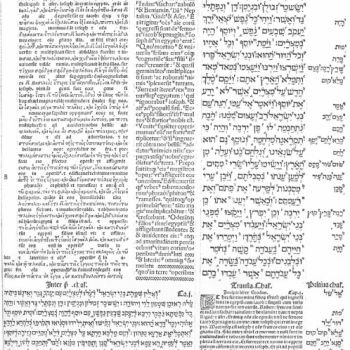A Collect or Prayer for All Conditions of Men
O God, the Creator and Preserver of all mankind,
we humbly beseech thee for all sorts1 and conditions of men;
that thou wouldst be pleased to make thy ways known unto them,
thy saving health2 unto all nations.
More especially we pray for the good estate of the Catholick3 Church;
that it may be so guided and governed by thy good Spirit
that all who profess and call themselves Christians may be led into the way of truth,
and hold the faith in unity of spirit, in the bond of peace, and in righteousness of life.
Finally we commend to thy fatherly goodness all those,
who are any ways afflicted in mind, body, or estate;
[here may be added special intentions;]
that it may please thee to comfort4 and relieve them, according to their several5 necessities,
giving them patience under their sufferings,
and a happy6 issue out of all their afflictions.
And this we beg for Jesus Christ his sake. Amen.
1The English word sort comes from the Latin sors, meaning “lot, fortune; allotted duty”; it retains more of this meaning in the seventeenth century.
2Health is often used in more archaic texts as a synonym for “salvation,” since it is a literal translation of the Latin salus (and the root salu-/salv– in Latin has a general meaning of “health, safety, well-being”).
3Why it is present in this specific word, I don’t know; however, the use of -ck at the end of words goes back to Carolingian minuscule, a form of writing (not unlike a font) devised in the eighth century. Many of the lower-case letter-forms in Carolingian minuscule are rounded, particularly c, e, m, n, o, and u, and the combination cc could easily be mistaken for a poorly-written a or u. In the middle of words this didn’t matter so much, as even at the worst one could simply count the number of loops and work out what the intended lettering was, but at the end of a word it would be ambiguous, since plenty of words (especially in Latin) do end with those letters. Hence, k was substituted for the second c in the interest of clarity.
4Comfort here most likely retains its older (now obsolete) meaning of “strengthen.”
5Several at this time meant not “vaguely between ‘a few’ and ‘many’,” as it does today, but “individual, peculiar, particular.”
6Besides its modern connotations, happy at this time still carried the suggestion of good luck or fortune—related as it is to the word happen.

A General Thanksgiving
Almighty God, Father of all mercies,
we thine unworthy servants do give thee most hearty and humble thanks
for all thy goodness and lovingkindness7 to us and to all men;
[here may be added special thanksgivings;]
We bless thee for our creation, preservation, and all the blessings of this life;
but above all for thine inestimable love in the redemption of the world by our Lord Jesus Christ,
for the means of grace,8 and for the hope of glory.
And we beseech thee, give us that due sense of all thy mercies,
that our hearts may be unfeignedly thankful,
and that we shew forth thy praise, not only with our lips, but in our lives;
by giving up ourselves to thy service,
and by walking before thee in holiness and righteousness all our days;
through Jesus Christ our Lord, to whom with thee and the Holy Ghost be all honor and glory, world without end.9 Amen.
7The word lovingkindness was originally coined by William Tyndale to translate the Hebrew term חֶסֶד (typically transliterated chesed). The word means “love” or “kindness,” with a particular connotation of God’s cherishing of his people Israel.
8The means of grace is a stock expression indicating the sacraments in English, especially in the Anglican, Methodist, and Reformed traditions.
9World without end is the traditional English rendering—now almost obsolete—of the Greek εἰς τοὺς αἰῶνας τῶν αἰώνων [eis tous aiōnas tōn aiōnōn] and its customary Latin translation in saecula saeculorum. The words αἰών [aiōn] and saeculum both mean “age, time; lifetime, generation,” and the English world was chosen to translate it in its temporal sense, as when we speak of “the ancient world” versus “the modern world.” Coincidentally, the English word shares with the Greek (though not the Latin) the spatial sense, with the result that when Jesus says in Matthew 28:20 I am with you always, to the end of the αἰών, it can be understood either as “to the end of time” or as “to the ends of the earth.”














